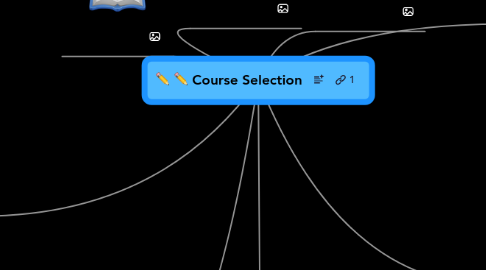Course Selection
by Danielle Berju

1. Social Studies
1.1. Accelerated Psychology
1.2. This course is designed for the student interested in the academic study of the basic principles of human behavior and mental processes. Students will examine issues such as the influence of biology on behavior, learning, memory, human development, intelligence, personality formation and mental illness. The students will examine and conduct research as it isapplied to these topics.
2. Elective
2.1. Nutrition and Dietics
2.2. This course is designed for the student who plans to pursue a career in a health field, such as medicine, dietetics, sports and fitness training, nursing or in the scientific aspect of Food Service. Nutrition and Dietetics includes a study of basic nutrition concepts and their application. An overview of carbohydrates, lipid, proteins, vitamins, and minerals is presented in detail in this course. Students are familiarized with the biochemical principles related to the macronutrients and micronutrients. Other topics include food analysis, food preparation, and adaptation for both normal and special diets, medical terminology, the role of food in the promotion of a healthy lifestyle, the use of the food exchange system, and some of the basic principles of the dietary treatment of diabetes, cardiovascular disease, and obesity.
2.3. Computers
2.4. This course will equip students with the skills and knowledge essential for top-level technology performance. Students will develop the knowledge and skills to prepare spreadsheets and presentations efficiently for college assignments and business tasks. This course prepares students for the Microsoft Office Specialist exams in Excel and PowerPoint.
2.5. Physical Education
2.6. The Physical Education program for students in grades 9 through 12 consists of elective offerings that include a variety of lifetime, team, and conditioning activities as well as swimming which is required of all ninth graders (North only). Students will also be encouraged to maintain and improve their fitness levels and will be tested periodically for physical fitness.
3. New node
4. New node
5. Math
5.1. AP CALC AB
5.2. This course is provided as an introduction to college mathematics. The topics covered are those typically found in the first semester and some of the second semester of a college level course, including functions, graphs, limits, rate of change, formal differentiation, applications of the derivative, integration, applications of integration, and transcendental functions. A graphing calculator is required for this course. This course consists of a full academic year of work in calculus and topics covered in courses at the college level. It is expected that students taking this course will seek college credit or placement by taking the Advanced Placement examination in May.
6. Science
6.1. Honors Anatomy
6.2. This course is designed to provide students with an in depth background in human anatomy (structure) and physiology (function). It is strongly recommended for students who have an interest in medicine, nursing, or other health careers. Emphasis is placed on skeletal, muscular, nervous, endocrine, digestive, respiratory, reproductive, cardiovascular, urinary and immune systems. Laboratory work includes studies of tissue, blood and urine. Dissections, which are a critical aspect of the course, include sheep organs (brain, eye, heart); and a rat and a cat for comparative anatomy studies. Reports, model building, and speakers are also included. Students must be able to work well in a supervised lab. To elect this course, students must have completed Accelerated Biology or Honors Biology, and should have completed Accelerated Chemistry or Honors Chemistry.
7. English
7.1. Englsih 12 Accelerated
7.2. This full-year course requires students to have competent reading and proficient writing skills. Literature selections emphasize world authors. Required reading includes an early classic, an existential work, a Shakespearean play, a 20th century novel, short stories, and poems. In addition to writing a researched literary analysis, students will compose essays in a variety of writing modes; informational, persuasive, descriptive, and personal. Vocabulary will be an integral component, and much of the reading, writing, and study will require self-direction and independence
8. New node


